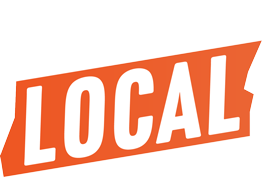Frequently Asked Questions
-
What is Oregon’s current liquor system?
Under our current system, the State of Oregon has the exclusive right to store, distribute, price, and sell packaged distilled spirits belonging to state-licensed retail stores. This regulated system ensures stable pricing for consumers, gives local Oregon-based distillers the ability to sell their product to customers statewide, and ensures that sales are regulated to keep liquor out of the hands of minors. Revenues from the OLCC (Oregon Liquor and Cannabis Commission) helps fund essential services at the city, county and state level, including schools, public health programs, and public safety.
-
What impact does liquor funding have on schools, healthcare, and public safety?
Oregon distilleries support 18,000 jobs and generate $1.6 billion for education, healthcare, wildfire responses, addiction recovery programs, and other services critical to Oregon communities.
-
How do other states’ liquor laws compare to Oregon’s?
In states where they have deregulated liquor sales, consumers, small businesses, and communities have suffered. Since Washington passed liquor privatization in 2013, they have had some of the highest liquor prices in the country, and many voters have expressed regret about voting for the measure. It’s clear that a regulated system – like we have in Oregon – works. It leads to fair prices and more choices for consumers, critical funding for community services, and an environment where our small businesses and local distilleries can thrive.
-
How does our current system keep costs for consumers down and increase consumer choice?
The state system promotes parity among distillers, which allows for more variety for consumers. Under our current system, the prices are also set by the state, meaning consumers can be assured that they are getting the fairest price.
-
Why is our current system good for Oregon small businesses and communities?
Our current system supports small businesses and communities by:
- Keeping small, local Oregon distillers in the market and in business by providing parity of shelf space and assuring that larger retailers cannot give preference to their own private label products.
- Generating significant funding for local schools, healthcare, public safety, and state and local governments.
- Giving consumers more choices of liquor and spirits, including restaurants who have already had to struggle to bounce back from the COVID-19 pandemic.
- Controlling prices, so that Oregonians are paying fair prices no matter where they shop for alcohol.
- Ensuring that alcohol is handled and sold in a safe manner, reducing alcohol accessibility to minors and individuals experiencing addiction.
